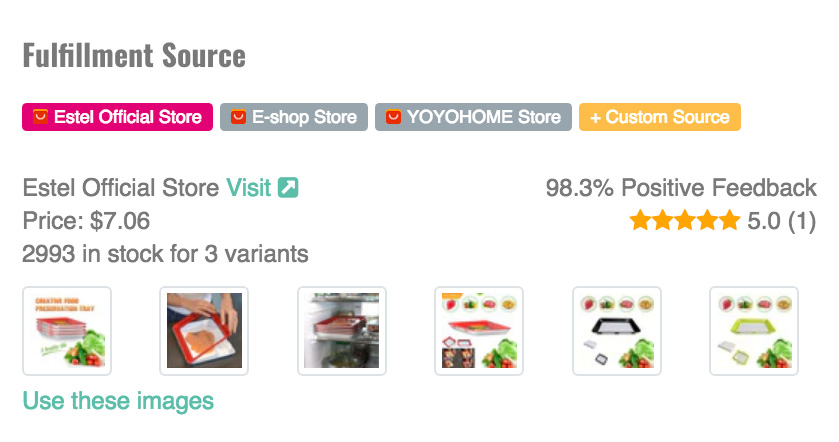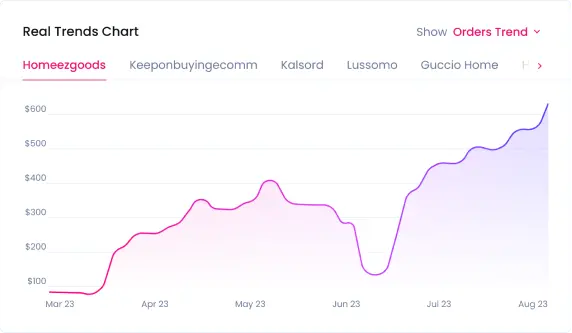What is drop surfing dropshipping?
Contents
-a3c65.jpg)
Image Credit: The Watch Judge
Drop surfing dropshipping is the latest buzzword in the eCommerce industry. It involves surfing on a wave of suppliers and continually finding new ones with better price offers. Business owners who practice drop surfing will continue to move their business across suppliers who offer better prices at different points.
How is Drop Surfing Different from Dropshipping?
The simple answer is that there’s no difference. If you’re a dropshipper, then you probably already engage in drop surfing. Let’s make it simple. As a dropshipper, you’re always on the lookout for hot, trendy products. When you find a new one, you quickly conduct your research on available suppliers. Most dropshippers will head straight to AliExpress. On AliExpress, you’ll find the top suppliers of that product who have high ratings and a good track record with dropshippers.
Once these boxes are checked, there’s only one determining factor left; the price. As a business owner looking to maximize profit, you’ll most likely choose the qualified supplier with the lowest price, so that you can make more profit. This process which is a part of the dropshipping model is what has been rebranded as drop surfing.
Why is the Drop Surfing Concept Growing So Fast?
We just learned that drop surfing is the same thing as dropshipping. So why are more dropshippers jumping on the bandwagon and paying thousands of dollars for drop surfing courses?
Well, the answer is simple. There are industry ‘experts’ who make a tidy profit from introducing new concepts into the market and teaching them to willing business owners. In this case, so many other ideas have been added on to the drop surfing concept to make it robust enough to gather attention.
Some people have claimed that drop surfing is not just about the price. Another definition of drop surfing is that it involves “surfing the wave” of the hottest products to make as many sales as possible. This means that you’re always watching the market, picking up on growing product trends, and adding them to your dropshipping store. Again, this is something that dropshippers already practice. A lot of dropshipping stores exist solely to push highly-converting, trendy products. We don’t need to brand the strategy as “drop surfing” to realize that we’ve been following the same steps.
Dropshippers are easily convinced of the concept because drop surfing works. If you buy Product X at $4 and sell 100 pieces at $10, you’ll make a gross profit of $600. However, if you buy Product X at $2 and sell 100 pieces at $10, you’ll make a gross profit of $800. When these figures are presented to dropshippers as the benefit of drop surfing, it becomes easier to accept that there’s a weight to the concept.
The increase in profit as demonstrated above is a very common business strategy. Dropshippers have been using this strategy since the start of the dropshipping business model. While we can say that giving it a name- Drop Surfing- makes it easier to recognize, we can’t say that it’s a new or different thing.
Can I Grow My Business by Following the Drop Surfing Trend?
While I’m not inclined to recognize drop surfing as a real concept, I believe that it has helped some people grow their businesses. And it can probably help you too if you don’t practice the strategy already. The buzz about drop surfing has pushed dropshippers to review their selection process of suppliers and find better deals for their businesses. If a dropshipper changes their supplier and makes more profit, that’s a win in my opinion.
However, I’m wary of this concept because of how easy it is being used to scam dropshippers. Marketing ‘gurus’ and dropshipping ‘experts’ are selling courses worth hundreds and thousands of dollars on drop surfing to unsuspecting business owners. I doubt that there’s anything in these courses that can significantly change the performance of a dropshipping business.
There’s also the concern of drop surfing being sold as the ‘hack’ to being successful as a dropshipper. To practice drop surfing as the ‘gurus’ tell us, you have to spend a significant amount of time on research. This involves both research on suppliers and research on products. Market research is serious work that requires a high level of commitment. According to the US Small Business Administration, 80% of small businesses have no employees. Most dropshipping businesses fall within this category. This means that they don’t have the working hours for this level of committed research. Most business owners will have to compromise on their marketing or customer efforts to drop surf effectively.
The Good News!
If you are member of Sell The Trend, you’re already drop surfing! Whether Drop surfing is a “real” thing or not you already have the best platform out there to get you access to the suppliers you need with complete ease. Just go to our Push To Store Page, and check out the section under Fulfillment Source. There you can easily click different suppliers and be able to quickly compare the different details about each supplier. it really is like you are surfing for the best supplier.

Is Drop Surfing Relevant to the Growth of Dropshipping Businesses?
Overall, I would say that drop surfing is not really relevant and most probably be abandoned like every other buzz word. The only people who are pushing this conversation are those trying to teach others about the concept of drop surfing. We can easily see that these efforts are to gain attention or make a profit.
Dropshippers who invest time or use tools like Sell The Trend already enjoy the benefits which drop surfing promises. Finding the best suppliers can make or break your business. In this case, it’s not just about pricing. The quality of your suppliers’ products and support should also be considered. As far as any buyer is concerned, errors made by the supplier are the fault of your brand. So there’s some benefit to working with the same (trusted) suppliers, even if they offer slightly higher pricing than the competition.
However, veteran dropshippers also know how to recognize the signs saying that it’s time to move on from a supplier. If they are offering significantly higher prices, or their quality is dropping, there’s some benefit to testing out new suppliers.




